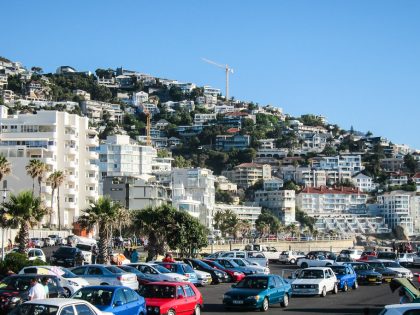
Violence against children doesn’t take place in a vacuum
A government proposal to outlaw violence by parents against their children exposes how widely acceptable the practice is in South Africa.
34 Article(s) by:
Alice de Vries studies and writes about international development and globalization with a focus on gender inequality.

A government proposal to outlaw violence by parents against their children exposes how widely acceptable the practice is in South Africa.

The simple fact that all forms of violence in South Africa have a male face tells us there’s something fundamentally wrong with ideas around manhood there.

This is the second in a 3 part series of posts on sexual violence against women, focuses on the campaign strategies of groups led by men who fight gender-based violence.

Most men in South Africa share the same ideas about manhood that fuel assaults against women. The media should keep the spotlight on that.

A Dutch filmmaker travels to Zambia to find out what “liberated, spoiled, but also insecure” Western women can learn from their African counterparts.

The Dutch artist Ruud van Empel talks about his art, including his portrayal of black children as ideal types from middle class Dutch 1960s backgrounds.

It is not good enough to teach our sons not to rape. We need to teach our sons that a woman is not some “thing” placed on this planet just to satisfy whatever desire you have.

The Children’s Radio Foundation, which trains young radio reporters, invited pop musician Colin Greenwood to South Africa. Would the trip break with celebrity conventions?

In South Africa, repackaging dated colonial fears about race and sex are used to sell beer and to win an advertising award for being “different.”

It might not be Dakar or Nairobi, but Gaborone certainly does not look empty.

Children’s Radio Foundation’s shows are a testament to children’s capacity to be agents for change and to confront critical community issues themselves.

In supposedly post-apartheid South Africa – where political and economic power are at odds – what happens in gay spaces?

White Euro-Americans are drawn to Sub Saharan Africa by an urge to explore, do good or by a more existential desire for an encounter with radical difference.

The positive media surrounding ‘Cape Town as a gay paradise’ obscures far more complex realities.